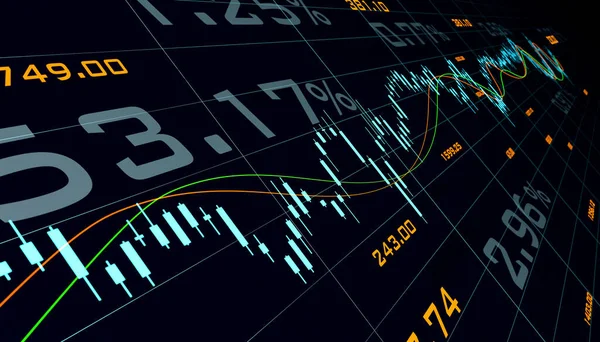
Financial markets are evolving faster than ever. While Forex has dominated the world of currency trading for decades, the rise of cryptocurrencies introduced a new asset class with its own rules, risks, and rewards. Today, millions of individuals trade both fiat pairs and digital assets — often inside the same diversified portfolio. A self-custodial wallet like Gem Wallet sits at the center of this transformation: it’s no longer just a vault — it’s a gateway to global capital mobility, decentralized finance, and strategic asset control.
Crypto wallets are far more than digital vaults. They are gateways to decentralized finance, yield-generating products, global transfers, and multi-chain markets. Their function goes beyond storage — they are rapidly becoming strategic instruments for capital mobility, risk hedging, and financial independence. Understanding this evolution is essential for every trader seeking long-term success.
Why Self-Custody Is the New Standard
Forex traders are familiar with counterparty risk — when you rely on a broker, their failure becomes your loss. Crypto exchanges operate similarly: if a platform freezes withdrawals or collapses, funds disappear. Multiple high-profile bankruptcies proved one critical phrase: “Not your keys, not your crypto.”
Self-custodial wallets eliminate this vulnerability. Private keys are generated locally and controlled only by the user. No bank account can be frozen, no centralized operator can block withdrawals, and no regulatory shift can seize assets overnight. For professionals managing high-value positions, this level of sovereignty is not a preference — it is a necessity.

Market Efficiency Through Multi-Chain Access
Crypto now includes more than 25 major blockchains with real liquidity. Ethereum leads DeFi development, Solana pushes high-speed environments, BNB Chain supports retail adoption, and networks like Polygon or Avalanche enable scalable decentralized apps. Traders who operate cross-chain gain access to:
- Faster settlements during market volatility
- Lower fees on alternative networks
- New yield and staking opportunities
- Tokens not available on centralized platforms
However, true multi-chain operations are only possible if the wallet supports these networks natively. Otherwise, traders are forced to juggle multiple apps and bridges — increasing transaction risk significantly.
Staking, Swaps, and Fiat On-Ramp: Tools for Real Strategies
Traditional currency trading generates profit exclusively from price movements. Crypto wallets expand income models by enabling passive earnings directly within the app:
- Staking — earning yield for supporting proof-of-stake networks
- Liquidity incentives — rewards from decentralized exchanges
- In-wallet swaps — converting tokens without leaving the wallet
Add built-in fiat services — and a wallet becomes a complete trading hub that connects banks, exchanges, and DeFi seamlessly. Traders can shift capital where it is most efficient with minimal friction.
Security Is Now Alpha: Wallet Models Compared
Many users choose wallets by popularity instead of understanding the security architecture. Below — a comparison that highlights real operational differences that matter for investors.
| Feature | Self-Custodial Wallets | Centralized Exchanges | Browser Extension Wallets |
|---|---|---|---|
| Private key control | Full user ownership | Exchange custody | User controlled (but exposure in browser environment) |
| Regulatory freeze risk | Very low | High | Medium |
| dApp access | Native, full | Restricted or unavailable | Available but exposed to phishing/malware risks |
| Vulnerability surface | Device-level only | Large centralized attack surface | Browser-based exposure, plugin risk |
| Best for | Investors & pro traders | Beginners and short-term trading | Web3 explorers with caution |
How Crypto and Forex Converge Through Wallet Infrastructure
For years, currency trading depended on intermediaries — banks, brokers, liquidity providers. Crypto demonstrated what markets look like without them. Execution is faster. Transfers are borderless. Value is not tied to national policies. This is why institutions are gradually adopting blockchain-powered settlement systems.
The wallets traders use today will soon be the same tools connecting them to tokenized treasury bonds, synthetic FX products, and on-chain commodity markets. Self-custody is becoming a professional standard, not an alternative solution.
Final Thoughts: Traders Who Adapt First Win First
Success in finance has always relied on one skill above all: adaptation. While many remain stuck in outdated systems, forward-thinking traders expand into crypto because they see:
- Greater liquidity potential
- New market access
- Decentralized yield structures
- Faster and more transparent settlement
Crypto wallets are the infrastructure enabling this shift — and the traders who master them today will define the markets of tomorrow.
In the emerging world of borderless capital, independence and control are becoming the ultimate financial advantages.